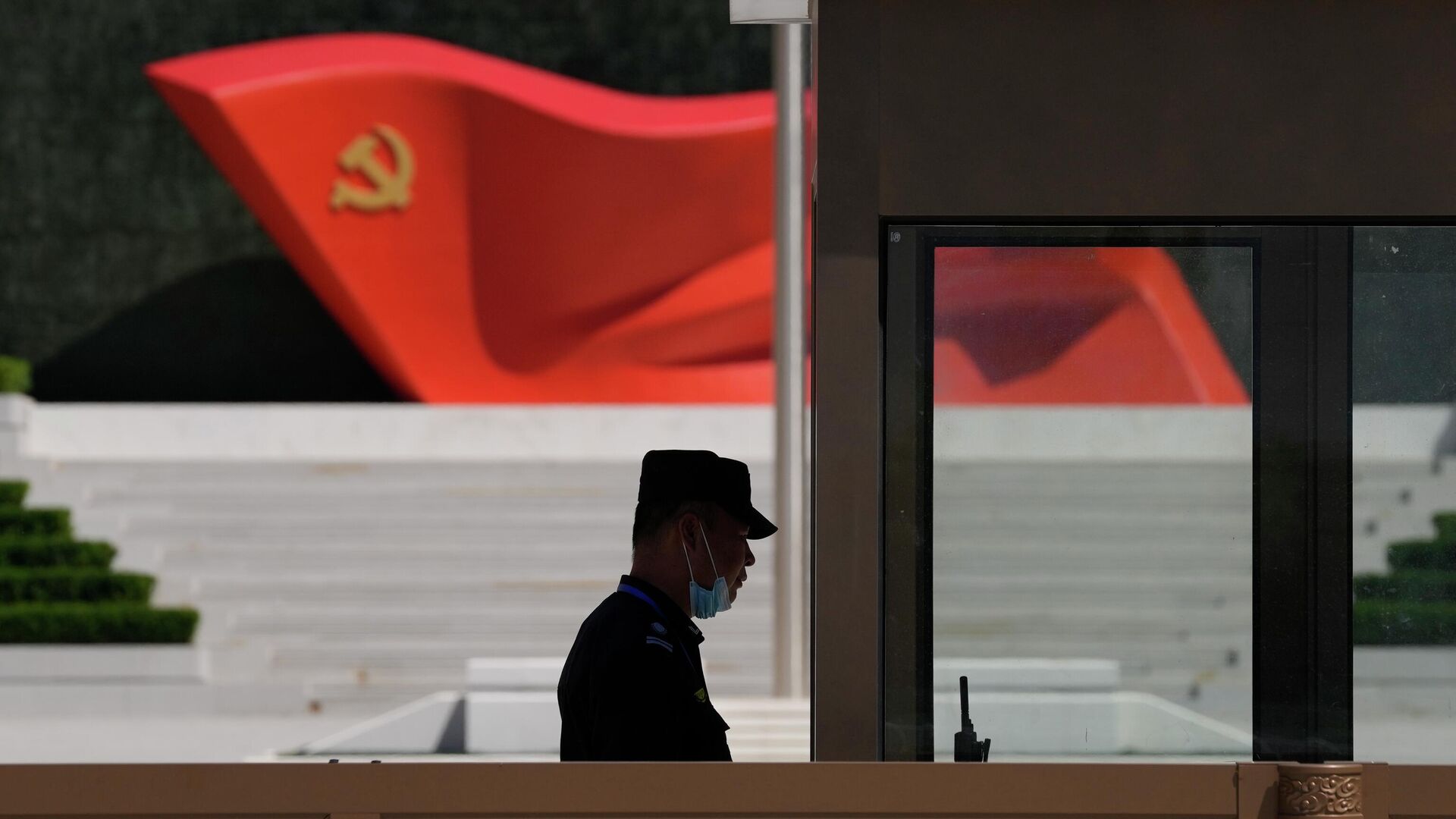https://sputnikglobe.com/20221102/scholz-germany-adheres-to-one-china-policy-regarding-taiwan-1103121834.html
Scholz: Germany Adheres to One-China Policy Regarding Taiwan
Scholz: Germany Adheres to One-China Policy Regarding Taiwan
Sputnik International
BERLIN (Sputnik) - Germany adheres to the One-China principle in assessing the situation around Taiwan, which in its interpretation means that any change to... 02.11.2022, Sputnik International
2022-11-02T18:14+0000
2022-11-02T18:14+0000
2023-06-19T12:45+0000
world
germany
europe
one china policy
taiwan
https://cdn1.img.sputnikglobe.com/img/07e6/08/01/1097996423_0:320:3073:2048_1920x0_80_0_0_719013ad3b42ec3f2ec502571557a680.jpg
"The tense situation around Taiwan is raising concerns. Just like the United States and many other countries, we adhere to the One-China policy. However, this means that any change in the status quo must take place peacefully and by mutual consent. Our policy aims to maintain order based on rules, the peaceful resolution of conflicts, protection of human and minority rights, and free, fair global trade," Scholz said in an article for a German newspaper.In this regard, the German leader also noted that Beijing was and would continue to be an important partner of Berlin, but the relations between the two countries must be transformed, as Beijing has changed.It has been three years since the previous German chancellor, Angela Merkel, last visited China, Scholz recalled, adding that during that time, challenges and risks had significantly grown in Europe, East Asia and, in particular, in German-Chinese relations.Scholz will visit China on November 4. He is scheduled to meet with Chinese President Xi Jinping for the first time in Beijing. During the trip, the German chancellor will also hold talks with Chinese Prime Minister Li Keqiang. The negotiations will focus on bilateral relations, the Ukraine conflict and the deteriorating environment in the Taiwan Strait.The situation around Taiwan escalated after US House Speaker Nancy Pelosi visited the island in early August. Beijing condemned Pelosi's trip, which it regarded as a gesture of support for separatism, and launched large-scale military exercises in the vicinity of the island. Despite this fact, several countries, including Germany, have sent delegations to the island since then, further increasing tensions in the Taiwan Strait.Taiwan has been governed independently from mainland China since 1949. Beijing views the island as its province, while Taiwan — a territory with its own elected government — maintains that it is an autonomous country but stops short of declaring independence. Beijing opposes any official contacts of foreign states with Taipei and considers Chinese sovereignty over the island indisputable.
germany
taiwan
Sputnik International
feedback@sputniknews.com
+74956456601
MIA „Rossiya Segodnya“
2022
Sputnik International
feedback@sputniknews.com
+74956456601
MIA „Rossiya Segodnya“
News
en_EN
Sputnik International
feedback@sputniknews.com
+74956456601
MIA „Rossiya Segodnya“
Sputnik International
feedback@sputniknews.com
+74956456601
MIA „Rossiya Segodnya“
germany, europe, one china policy, taiwan
germany, europe, one china policy, taiwan
Scholz: Germany Adheres to One-China Policy Regarding Taiwan
18:14 GMT 02.11.2022 (Updated: 12:45 GMT 19.06.2023) BERLIN (Sputnik) - Germany adheres to the One-China principle in assessing the situation around Taiwan, which in its interpretation means that any change to the status quo must take place by mutual consent, German Chancellor Olaf Scholz said on Wednesday.
"The tense situation around Taiwan is raising concerns. Just like the United States and many other countries, we adhere to the One-China policy. However, this means that any change in the status quo must take place peacefully and by mutual consent. Our policy aims to maintain order based on rules, the peaceful resolution of conflicts, protection of human and minority rights, and free, fair global trade," Scholz said in an article for a German newspaper.
In this regard, the German leader also noted that Beijing was and would continue to be an important partner of Berlin, but the relations between the two countries must be transformed, as Beijing has changed.
"The principle of measure as well as pragmatism are necessary," Scholz said.
It has been three years since the previous German chancellor, Angela Merkel, last visited China, Scholz recalled, adding that during that time, challenges and risks had significantly grown in Europe, East Asia and, in particular, in German-Chinese relations.
Scholz will visit China on November 4. He is scheduled to meet with Chinese President Xi Jinping for the first time in Beijing. During the trip, the German chancellor will also hold talks with Chinese Prime Minister Li Keqiang. The negotiations will focus on bilateral relations, the Ukraine conflict and the deteriorating environment in the Taiwan Strait.
The situation around Taiwan escalated after US House Speaker Nancy Pelosi visited the island in early August. Beijing condemned Pelosi's trip, which it regarded as a gesture of support for separatism, and launched large-scale military exercises in the vicinity of the island. Despite this fact, several countries, including Germany, have sent delegations to the island since then, further increasing tensions in the Taiwan Strait.
Taiwan has been governed independently from mainland China since 1949. Beijing views the island as its province, while Taiwan — a territory with its own elected government — maintains that it is an autonomous country but stops short of declaring independence. Beijing opposes any official contacts of foreign states with Taipei and considers Chinese sovereignty over the island indisputable.


